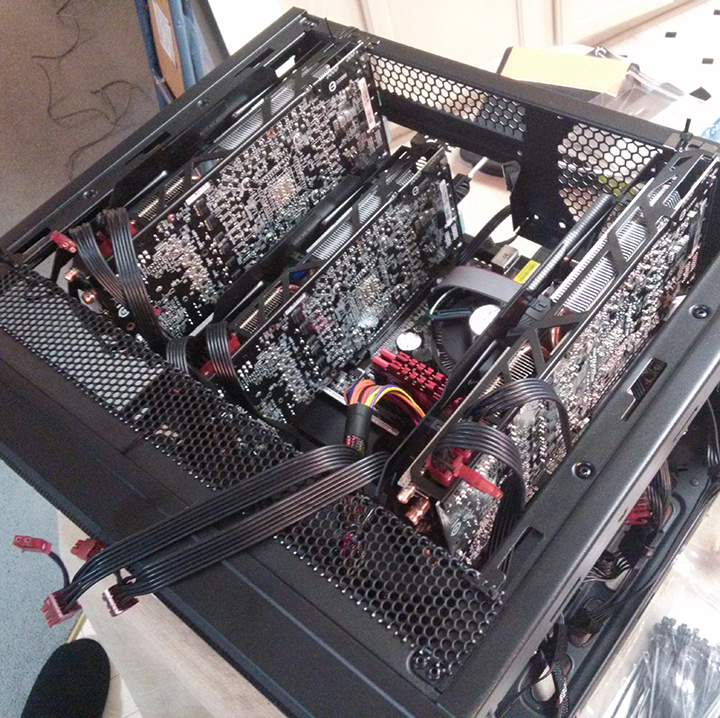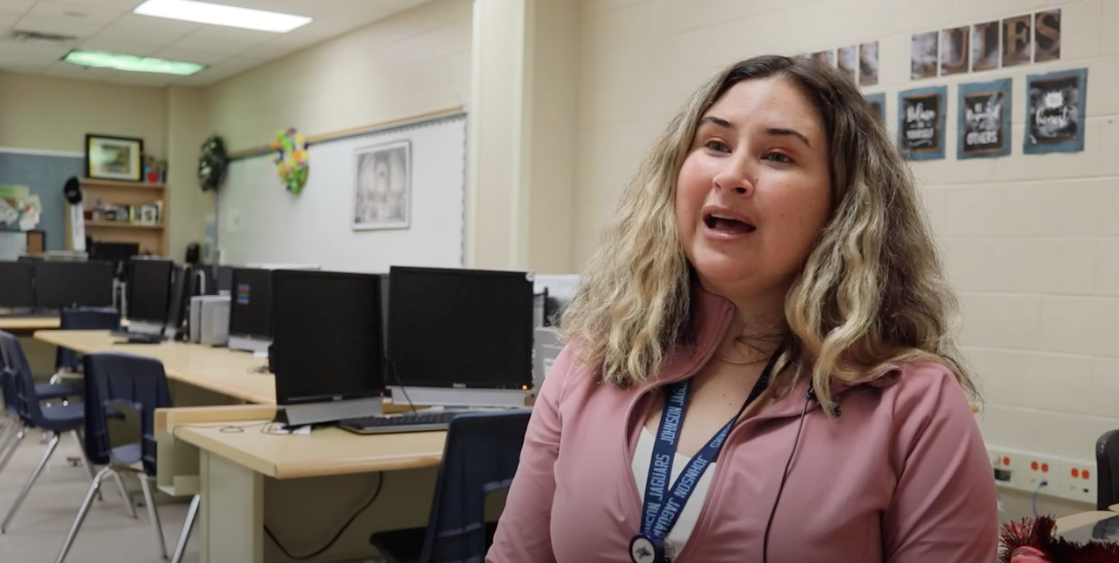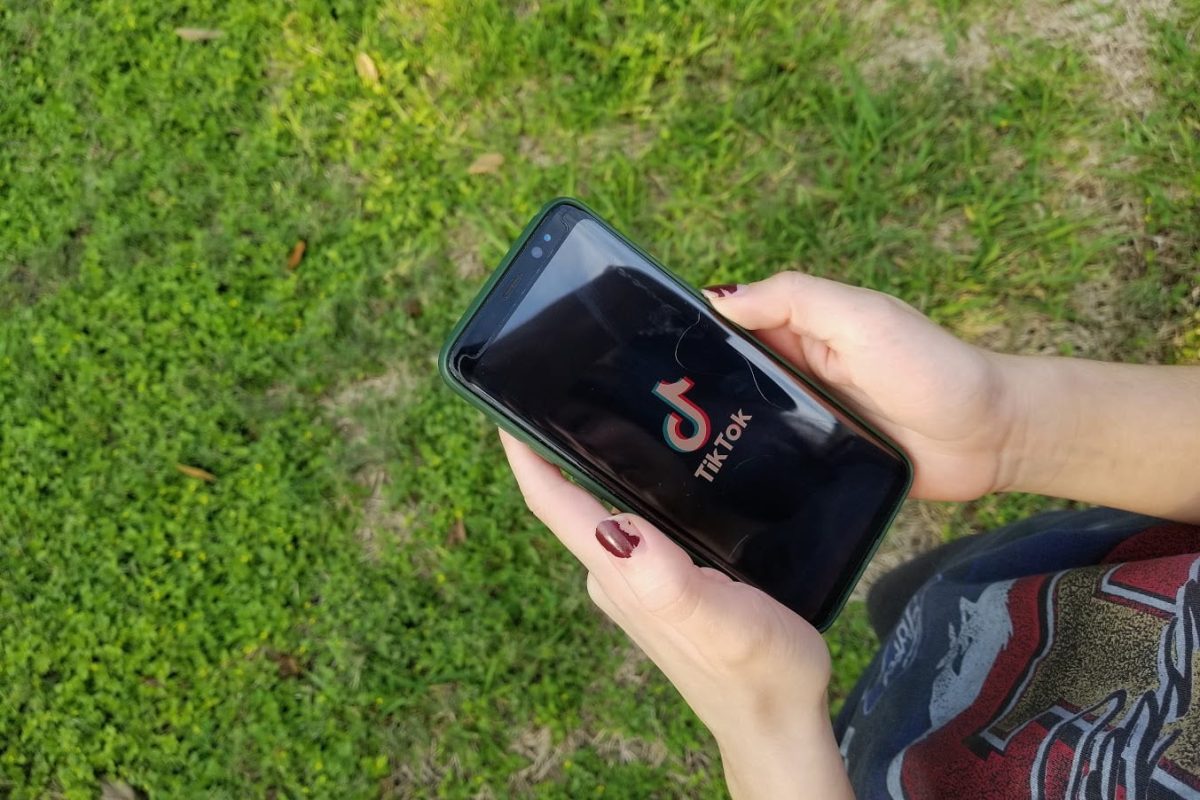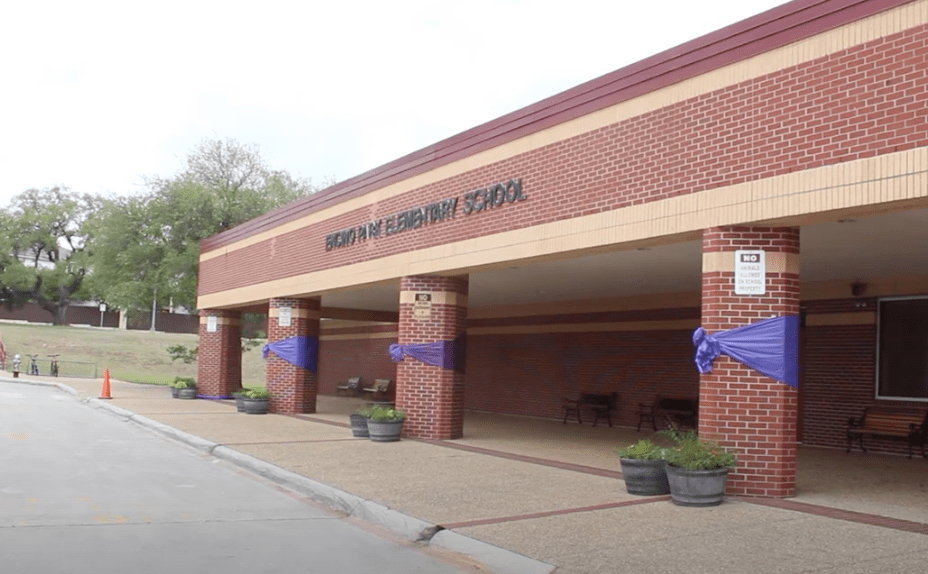by Daisy Creager | Staff Writer
Bitcoin. Founded by developer Satoshi Nakamoto, the digital currency was created to be immune to the predations of bankers and politicians. Generated at a predetermined rate by an open source computer program started in January of 2009, the currency is becoming accepted as payment by an increasing number of merchants. Among investors and programmers world wide, four seniors are jumping on the chance to be a part of this emerging market-more specifically the Bitcoin mining market.
“He sent me a text saying he had something to tell me,” Sean Kelley said. “He described his idea, and we met up later that day. The whole thing went from being this idea of his to we’re meeting and ordering parts the same day. It was pretty fast.”
Fang and Kelley, along with classmates Reagan Buell and Ben Snoha, have started Zellux Computing, LLC, a company that builds crypto currency mining rigs and sells them as investments for $2300 a computer.
“We build extremely powerful computers which perform encrypted calculations to generate coin,” Fang said. “You’re given an encrypted value and you run a specific algorithm that you can’t go backwards from. You run a whole bunch of random numbers until you find a certain number. The first person to find that block, is what it’s called, will receive a block of coins-this is called mining.”
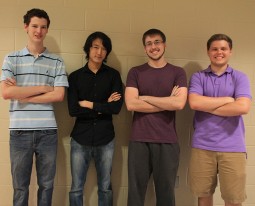
Because this process is fairly random, multiple people usually join together and hash into a pool.
“The pool will get the block and then they will distribute the coins in the block based off the hash rate that each individual user has contributed with their machine,” Fang said. “With each currency there will only be a certain number of coins that will ever be produced every so-and-so minutes and released into the network.”
In order to develop personal relationships with potential investors, the students plan to give presentations in peoples’ homes to promote their business. Two possible barriers for the new business include a general lack of knowledge about Bitcoin and a fear of risk.
“The general criticism is that it’s just digital money, it’s not something you can hold,” Fang said. “But it’s also a FIAT currency and the US dollar is a FIAT currency. The only reason their investment would fail would be if Bitcoin suddenly dropped to nothing and just stayed there or if their computer completely broke and we had no way to fix it.”
Despite these potential risks, however, the students are confident that their computers are solid investments and that Bitcoin is an emerging market which is growing quickly. According to Fang, the idea for the business was inspired when his dad exposed him to his own work.
“My dad was building his own crypto currency route and then he showed me my house’s own industrial electrical supply because he use to run servers here,” Fang said. “We also have this shed that we can work in, so all the conditions were right and I had a person with knowledge who would help me out.”
Once he got the idea, Fang recruited people who he thought would compliment each others’ skills. With Kelley and Buell’s knowledge of hardware, Snoha’s knowledge of software and Fang’s knowledge of business, the team would be able to work well together to make a successful team.
“It sounded like a really exciting opportunity and a chance to get out there in the business world before college, get some really great experience, and have a fun time doing it,” Buell said. “Not only do I get to meet a lot of cool people, I also get to do something that I love.”
While all four students saw this as a learning experience, none of them expected the complications they would run into along the way.
“There was a lot of unexpected problems,” Kelley said. “We basically thought that if we got the parts and put them together that it would work perfectly, but we have to sort out a lot of software issues and bugs too.”
However, despite their setbacks, the team is on track to recruit investors and view their work as well worth it.
“There has been a lot of trial and error,” Fang said. “It’s super high end on the computing scale so getting those parts to work together correctly and efficiently has been a pain. But, we’ve gotten a lot of experience. Saying you want to start a business is very different from actually starting a business. It teaches you to get past obstacles and keep yourself on track.”
Along with teaching the students what it takes to start a business, creating Zellux has gained them experience that will help them later.
“Being involved in a business and having to deal with problems that we didn’t expect is going to be useful in the future with learning to methodically approach problems that come up,” Kelley said.
In addition, their experience will look good to future employers.
“I feel like owning a business can really open doors for us in the future, it’s kind of like having an internship during college,” Buell said. “I mean, employers will look at this and think that we have initiative and want to be successful.”


